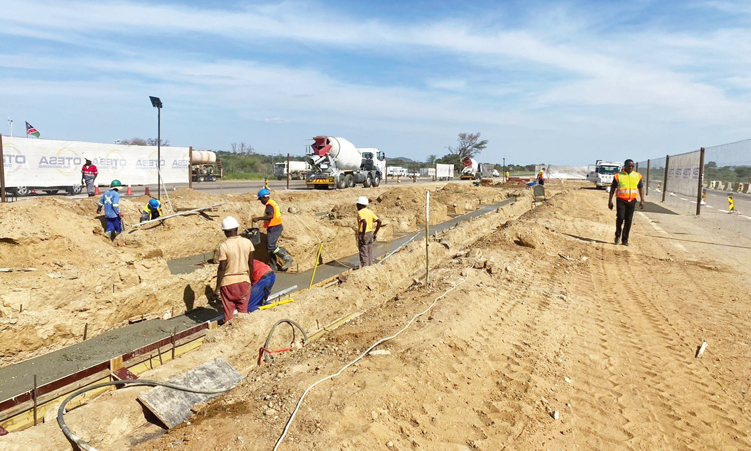CAPE TOWN – The African economy faces being left further behind by the rest of the world despite registering impressive growth rates since the turn of the decade, a new report forecast yesterday.
The continent was expected to achieve growth of 6,2 per cent in 2007, having measured 4,9 per cent for five years from 2001 and 5,5 per cent last year, said a joint report by the World Economic Forum (WEF), World Bank and African Development Bank. But this was not enough to raise its ranking on the global economic competitiveness ladder.”The African macro-economic environment is looking better and better,” WEF senior economist Jennifer Blanke told reporters in Cape Town on the first day of the annual WEF on Africa.”While there have been improvements, the problem is that the rest of the world is moving faster.”The latest Africa competitiveness report, released on the first day of the 17th WEF on Africa, expressed doubt whether the continent’s current growth trajectory would be sustainable in the long run.Much of it was fuelled by external factors such as high commodity prices, debt relief and a favourable international economic environment.”Truly sustainable growth, however, must be based on solid domestic foundations rather than a cyclical or exogenous circumstances,” said the report.High growth rates would have to be sustained over decades for Africa to raise the living standards of its people and meet poverty reduction targets set by the United Nations, said the report.”Present growth rates in Africa, although high by historical standards, are still short of the estimated seven percent annual growth that would be required to meet the (UN) Millennium Development Goal of halving poverty rates in the region by 2015.”The report was released as business and political leaders from across the continent were gathering for the annual WEF, which will debate ways of boosting growth on the world’s poorest continent.- Nampa-AFPBut this was not enough to raise its ranking on the global economic competitiveness ladder.”The African macro-economic environment is looking better and better,” WEF senior economist Jennifer Blanke told reporters in Cape Town on the first day of the annual WEF on Africa.”While there have been improvements, the problem is that the rest of the world is moving faster.”The latest Africa competitiveness report, released on the first day of the 17th WEF on Africa, expressed doubt whether the continent’s current growth trajectory would be sustainable in the long run.Much of it was fuelled by external factors such as high commodity prices, debt relief and a favourable international economic environment.”Truly sustainable growth, however, must be based on solid domestic foundations rather than a cyclical or exogenous circumstances,” said the report.High growth rates would have to be sustained over decades for Africa to raise the living standards of its people and meet poverty reduction targets set by the United Nations, said the report.”Present growth rates in Africa, although high by historical standards, are still short of the estimated seven percent annual growth that would be required to meet the (UN) Millennium Development Goal of halving poverty rates in the region by 2015.”The report was released as business and political leaders from across the continent were gathering for the annual WEF, which will debate ways of boosting growth on the world’s poorest continent.- Nampa-AFP
Stay informed with The Namibian – your source for credible journalism. Get in-depth reporting and opinions for
only N$85 a month. Invest in journalism, invest in democracy –
Subscribe Now!










